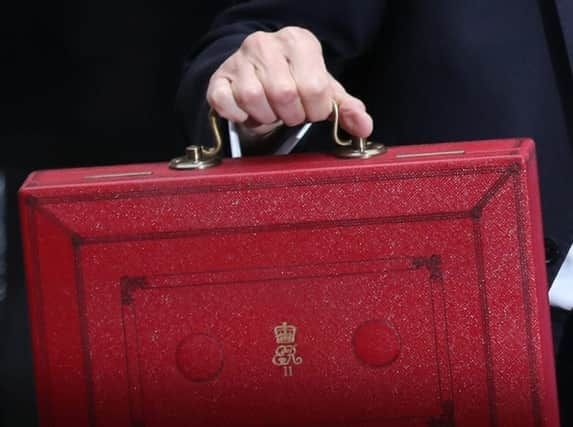Budget 2017: The winners and losers


Winners
First time buyers
The new Stamp Duty Land Tax (SDLT) exemption for first-time buyers is worth up to £5,000 in cash terms for all those buying at or below £500,000. It applies to individuals completing on a property purchase on or after today.
Also, the extension of the discount railcard for people aged up to 30 will provide another source of extra cash at the end of the month help to save for a house.
Advertisement
Hide AdAdvertisement
Hide AdInvestors & technology businesses
In a move to support Britain’s technology businesses, the Budget announced reforms to the Enterprise Investment Scheme (EIS) and Venture Capital Trust (VCT) rules to encourage more private investment in high-growth innovative firms. From 6 April 2018, an individual investor could enjoy up to £600,000 of tax relief a year through the doubling of the current limits. Whilst a welcome measure to boost private investment in technology businesses, the Chancellor could have done more by increasing the associated tax relief to 45% (from the current 30%). The amount of available cash in the private sector is higher than ever, and introducing a higher associated tax relief could have resulted in even more investment.
Individual taxpayers
Most individuals will benefit as the personal allowance, which is the amount of income on which no tax is due, is increased by £350 to £11,850 in April 2018. At the same time, the threshold for higher rate taxpayers, who pay tax at 40%, will also increase from £45,000 to £46,350. However, it’s worth remembering that the basic rate tax band will still be £100 lower than what it was over 10 years ago.
Those saving for retirement
The pensions lifetime allowance, the amount an individual can build up in tax-relieved pension savings, will increase to £1,030,000 in line with the Consumer Prices Index (CPI). Following previous Budgets where the various pensions allowances have been reduced, this year’s Budget offers some incentive for those saving for retirement to contribute to their pension.
Losers
Companies
Companies will not be able to benefit from an inflation relief (from 1 January 2018) when they make a capital gain. Individuals have not been able to benefit from the indexation allowance since 1998 and aligning that treatment for companies seems logical.
Advertisement
Hide AdAdvertisement
Hide AdVAT Fraudsters
The Government announced a packages of measures to extend HMRC’s powers and ensure that both overseas and UK online retailers pay their fair share of VAT. Additionally, in an attempt to tackle VAT fraud in the construction industry, the Government will introduce a domestic “reverse charge” VAT scheme for construction services. Effective from 1 October 2019, this will shift responsibility for paying VAT along the supply chain in order to remove the opportunity for it to be stolen.
The environment
We were promised a Budget for the future but instead received a derisory 1 band Vehicle Excise Duty (VED) increase on new cars from April 2018 and only another consultation into single-use plastics. The Chancellor should have been much bolder to secure our environment.
Tax dodgers
The government has responded to public and media pressure following the latest revelations in the ‘Paradise Papers’ and have announced eighteen new measures to tackle evasion and avoidance, which they say will bring in an additional £4.8 billion between now and 2022/23.
By Nimesh Shah
Originally published on our sister title iNews